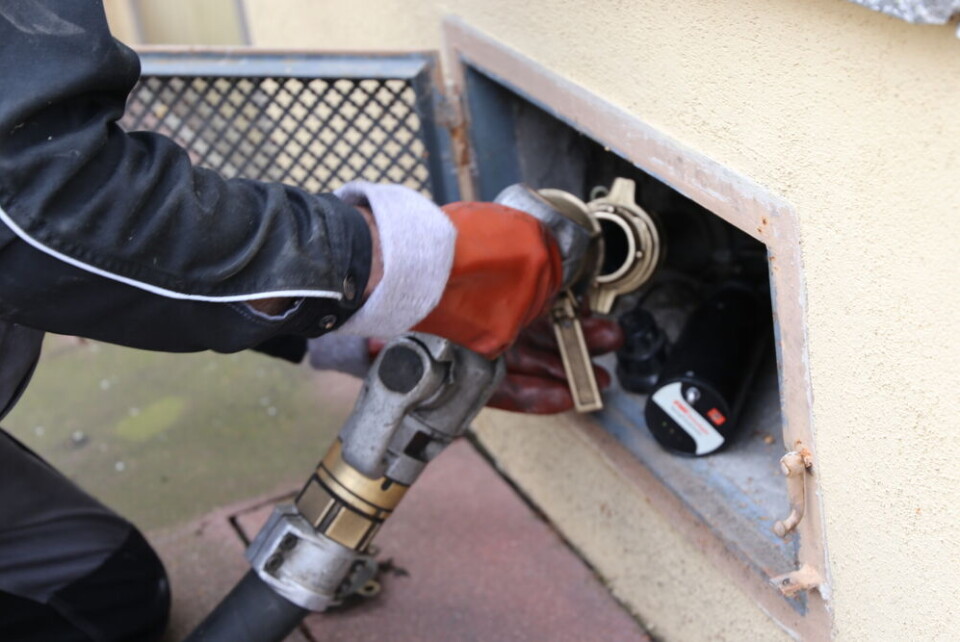-
Hosting scheme in south-west France lets newcomers sample lifestyle
Households in nine Dordogne communes volunteer under Mes Nouveaux Voisins scheme
-
How long does it take to sell property in different areas of France? New study
Many major cities are showing signs of recovery when it comes to supply, demand, prices, and time to sell
-
Seller and buyer bypass contracted estate agent - and land €30,000 penalty in France
The Bordeaux Court of Appeals rules a buyer and seller who avoided estate agent fees must pay compensation
Points to consider if heating your French home with fuel oil
We cover money-saving tips, market variables and alternatives

There are still around 3 million homes in France that are heated by fuel oil (fioul), despite a ban on new installations of fuel oil systems in France since July 2022.
The homes are mainly found in rural areas in detached homes, meaning banning these systems completely would be a mammoth task and something the government appears unwilling to do.
If your home has a fuel oil boiler – or you are interested in purchasing a property with one – here are some points to note about costs, upkeep, and longevity for your heater.
Number of users is going down steadily
Despite the three million homes still heated by fuel oil, there continues to be a considerable drop in fuel oil purchases as people turn to alternative methods.
This is both due to economic and ecological factors, with many looking to replace the heaters with green alternatives.
Eco-friendly replacements (including water or air pumps, or solar panel heating systems) are often partially funded through government schemes including MaPrimeRénov’.
Five years ago, 3.4 million homes used fuel heaters, now this number is 3 million.
By 2034, the FF3C (the union of fuel oil heater workers) predicts this will halve to less than 1.5 million.
Read more: Is a new boiler offer for €1 in France too good to be true?
Read more: Is there any aid to help replace old draughty windows at French home?
Fuel prices (slightly) fluctuate but remain mostly stable
Although the cost of heating with fuel oil can sometimes be lower than alternatives, prices fluctuate throughout the year, and the market is entering a period of potential instability.
Prices are usually lower in summer and have been “stable for the past year or so,” said Maëlle Ricard, Director of Operations at Fioulreduc, to Le Figaro.
However, “fluctuations in price are becoming increasingly difficult to predict,” she added, and last year prices rose earlier than expected, hitting normal winter levels long before the traditional high period.
It is uncertain whether the ever-dwindling numbers of people using fuel oil will increase prices due to scarcity, or lower them as producers battle for a smaller market share.
Read more: Heating oil and wood pellet prices lower than last year in France
Could heads be turned by biofuels?
Biofuel takes up a relatively small amount of market share (only 2% of online fuel deliveries), but could be a long-term alternative to fioul.
Switching to biofuels requires less work than installing an entirely new system, and despite being slightly more expensive, it takes considerably less to heat a home using biofuels than fioul, saving users money in the long-run.
Misinformation surrounding the fuel has been a problem, however.
“At one point, it was said that you should not keep it for more than six months, which wasn't very reassuring, but now we know that you can keep it for two years without any difficulty,” said Miss Ricard.
Some people are urging the government to introduce tax breaks or other financial alternatives to help people make the switch, but so far nothing has been announced.
Cool down homes to heat them up
One way to save money in properties with a fuel oil heater is to occasionally open windows, even in winter, to allow fresh air to move around the house.
“A well-ventilated house is less humid and heats up faster,” said Miss Ricard.
It is also advised to regularly maintain your boiler, keeping up with maintenance and quickly fixing any potential problems, and to install thermostats to keep a constant eye on temperatures.
Read more: Six tips to save money on your boiler in France
Buy in bulk to reduce price
As with most other non-perishable goods, buying in bulk can allow for significant discounts on deliveries, sometimes as much as €30 per delivery, allowing you to save hundreds of euros over the course of a year.
Even for non-industrial properties and smaller homes, bulk-buy discounts may still be available.
Read also
What changes for the environment in France in 2024?
























